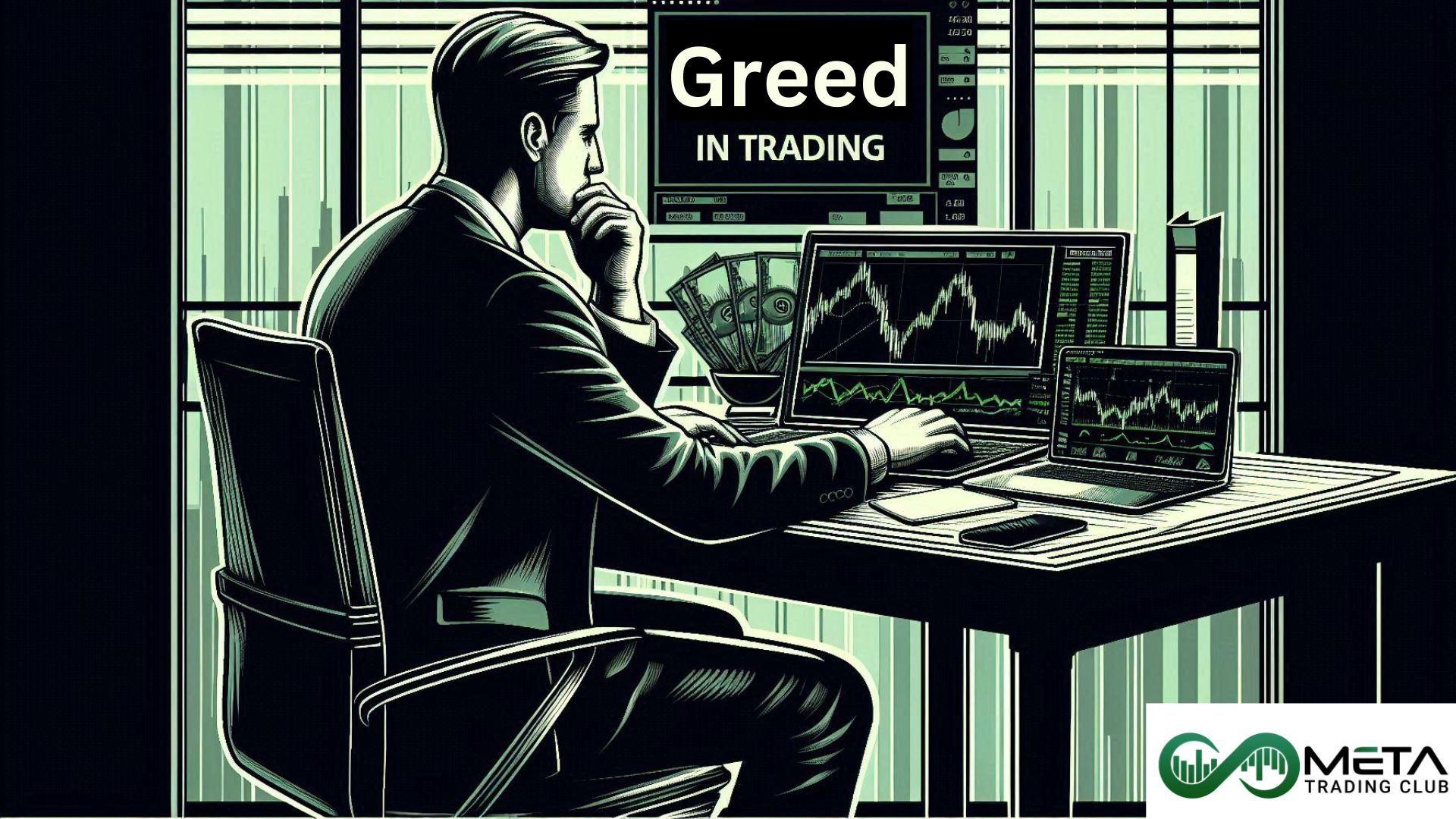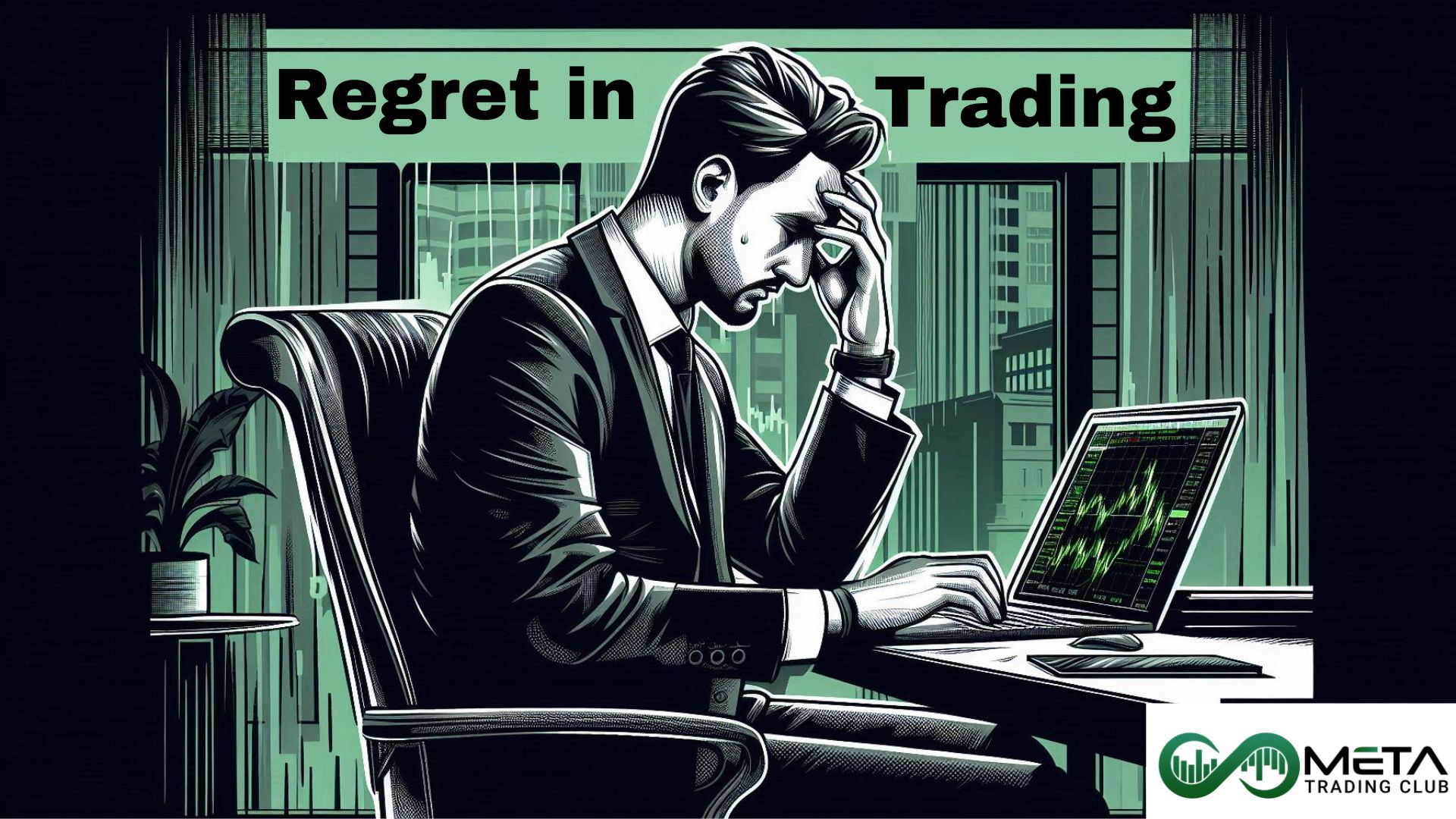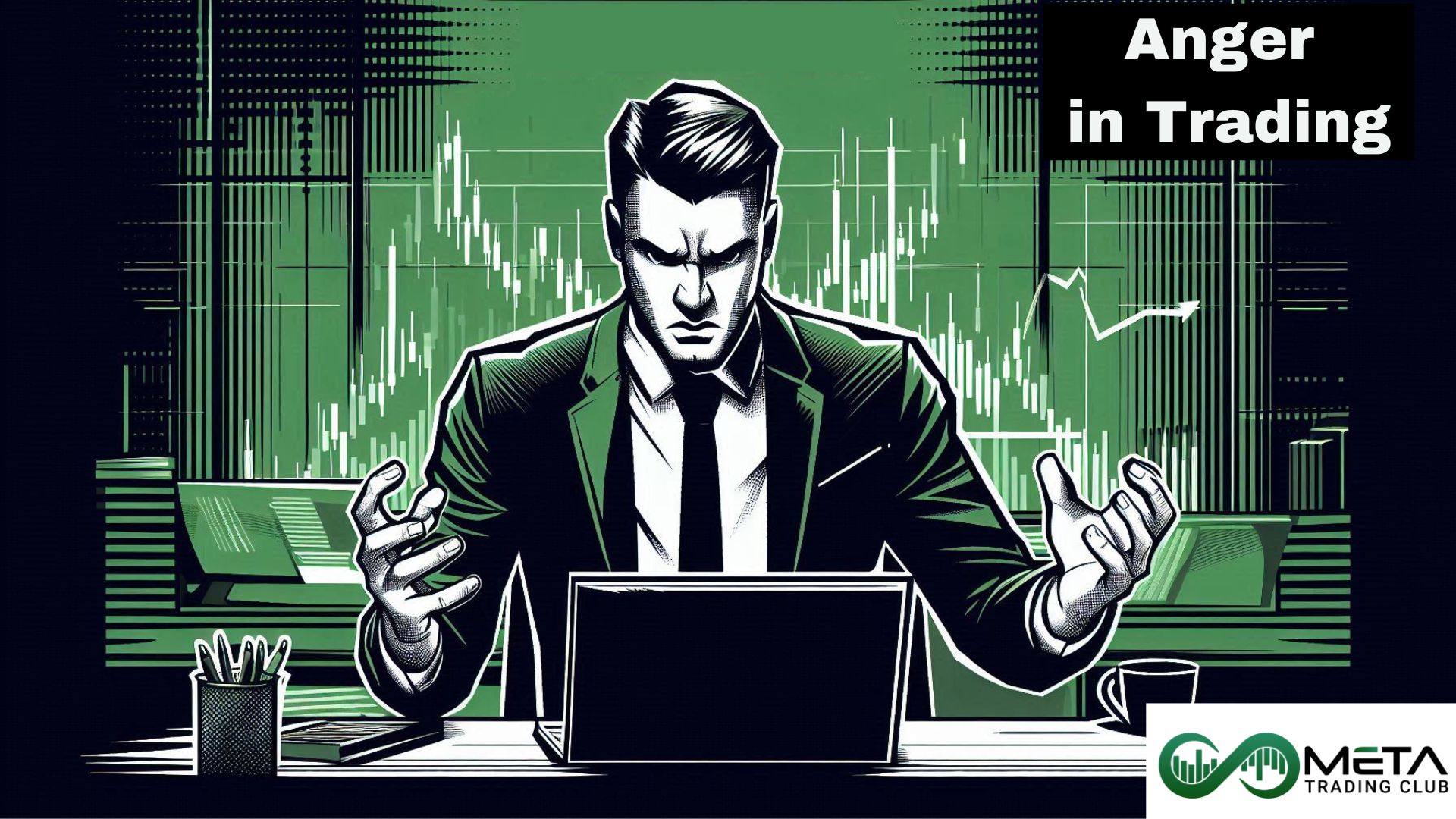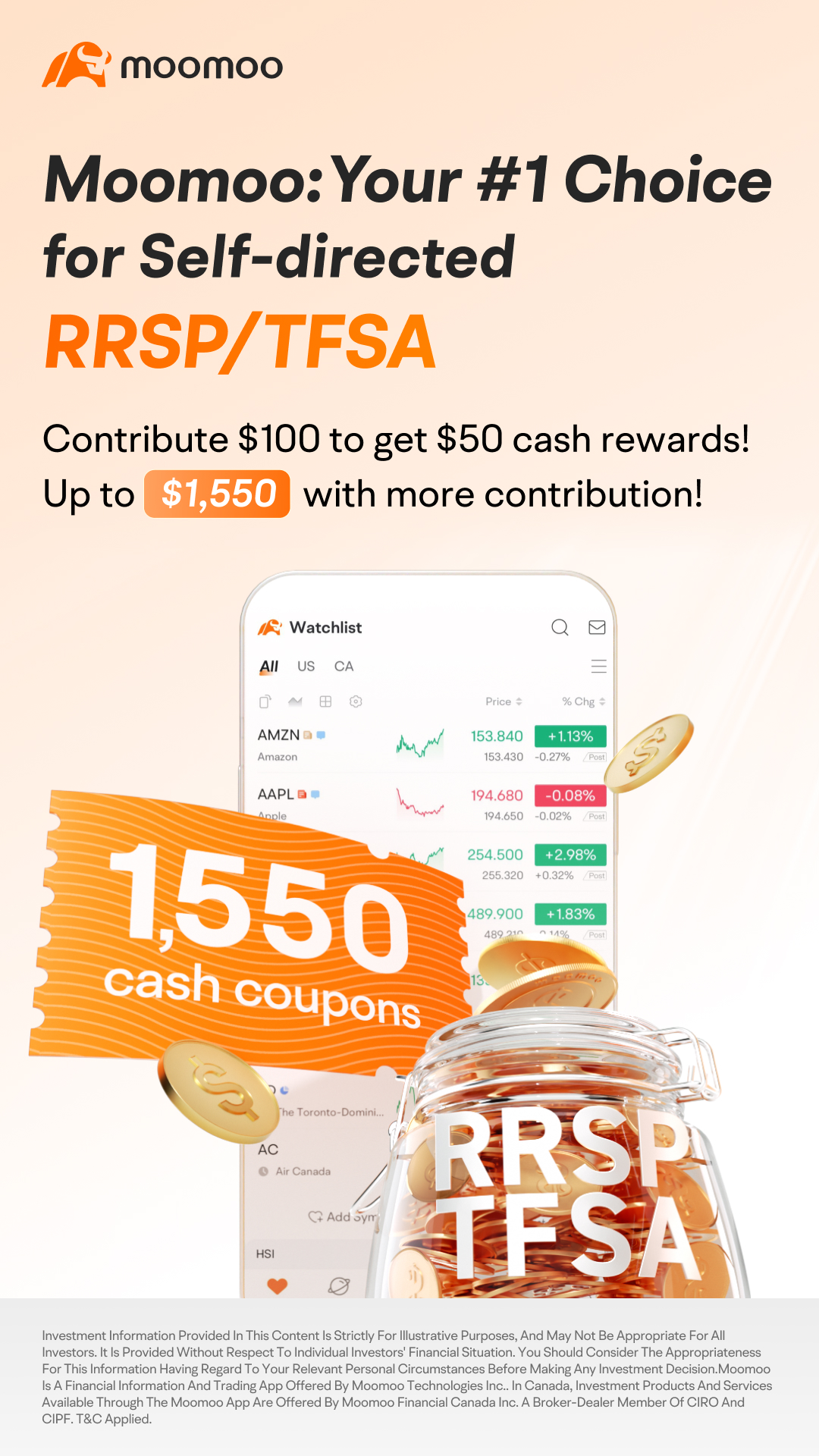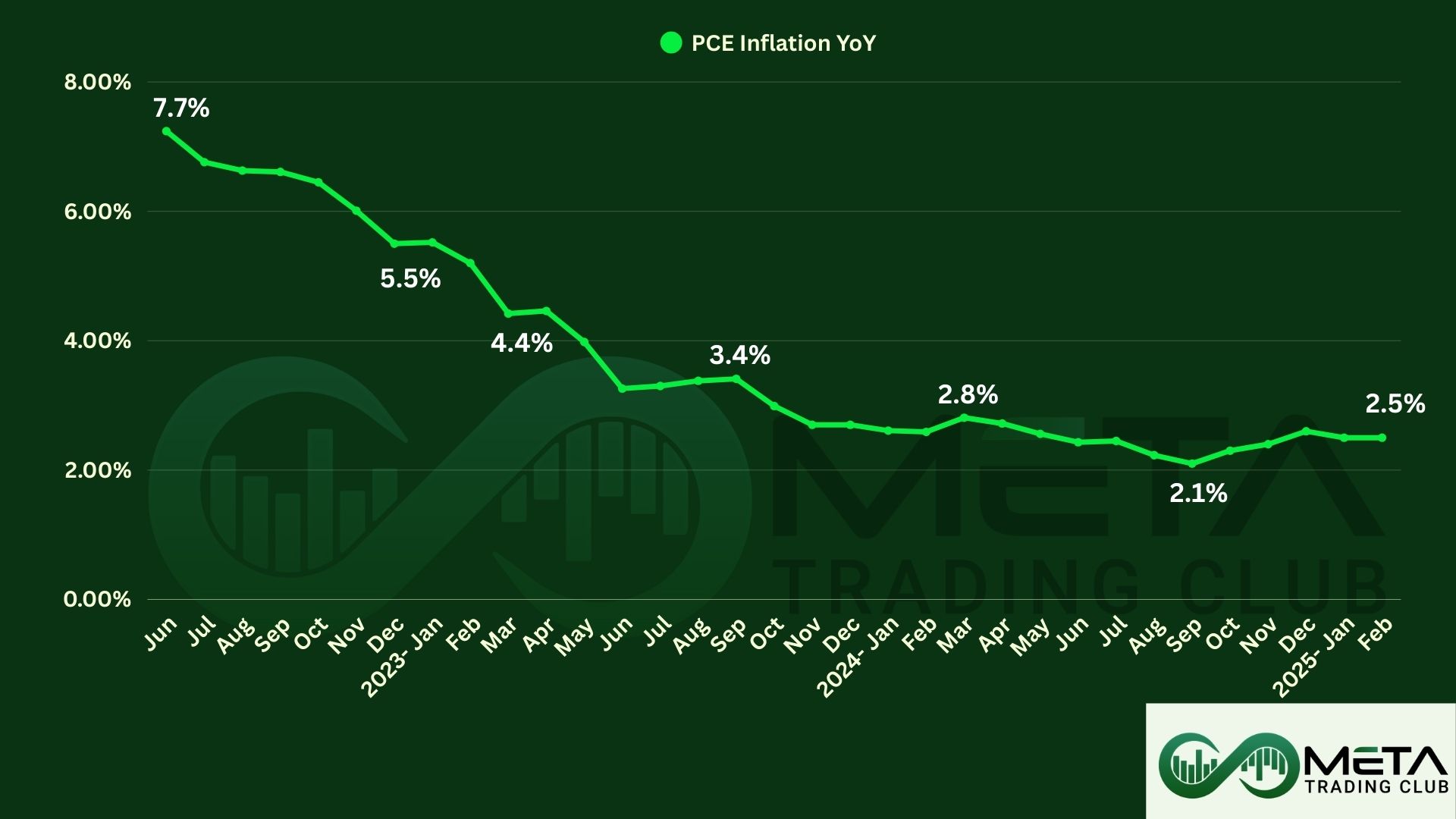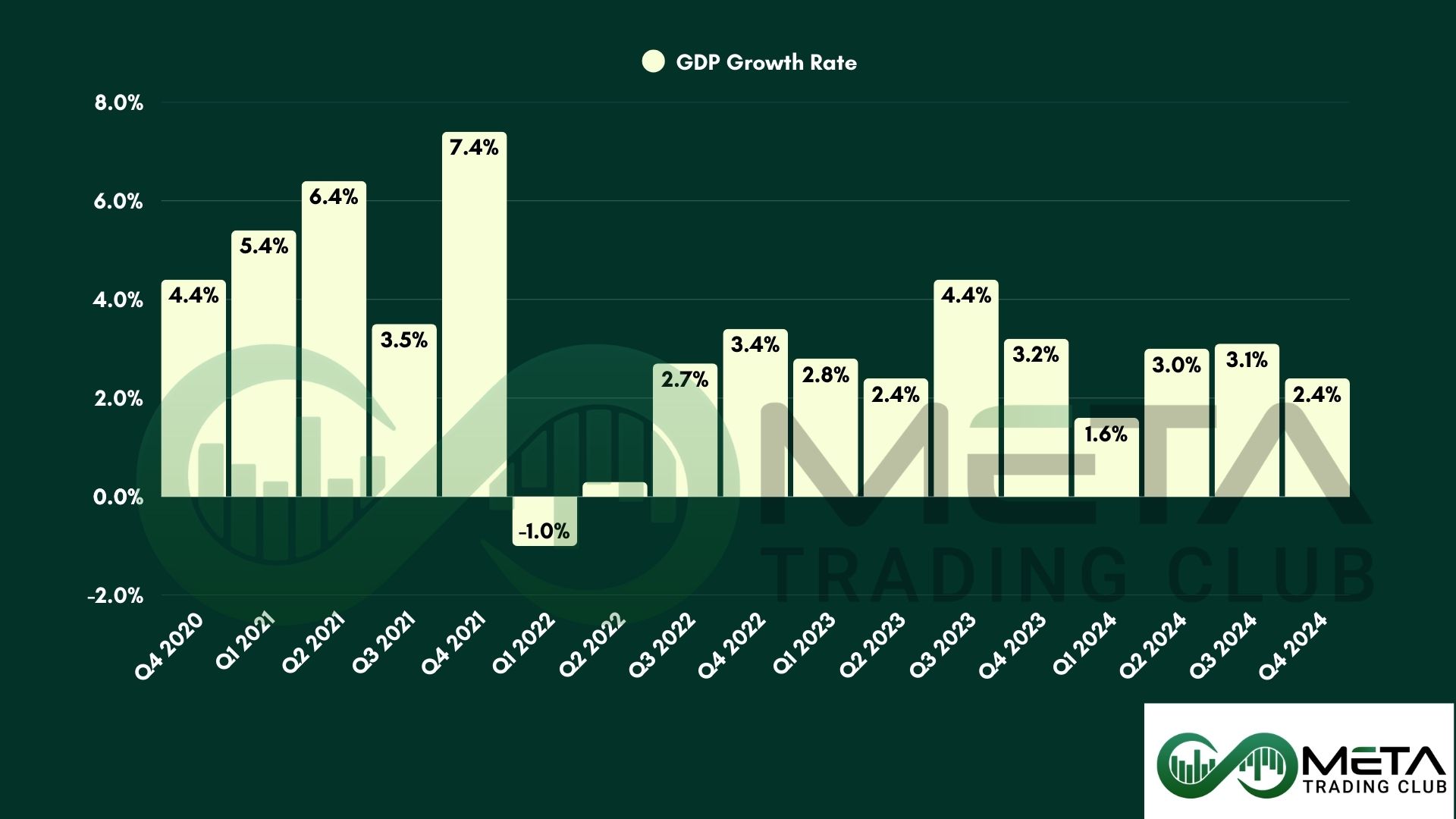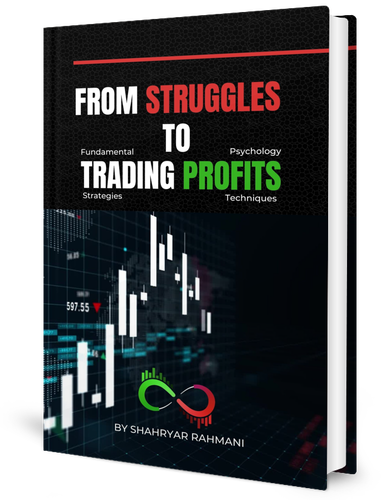Trading can often seem like a battlefield of data and predictions. Even the most experienced traders will admit that emotions play a significant role in trading decisions. Understanding the impact of emotion on trading can help traders guard against common pitfalls and control their feelings to make smarter decisions. Mastering emotions is important and can significantly impact various aspects of our lives, from personal relationships to trading success.
Emotions are powerful forces that influence our thoughts, behaviors, and decisions. When left unchecked, they can lead to impulsive actions and regrettable outcomes. However, by learning to understand and manage our emotions in trading, we can harness their power to improve our well-being and achieve our goals. In this article, we discover how emotional trading affects the market and strategies traders can implement to manage their emotions effectively.
Table of Contents
The Emotional Rollercoaster of Trading
Trading is inherently emotional. Whether it’s the thrill of a profitable trade or the despair of a losing one. Also, emotions can cloud judgment, leading to impulsive decisions and potential financial loss. For instance, fear and greed are powerful drivers that can distort a trader’s perception of the market.
Emotional mastery involves recognizing and acknowledging our feelings, understanding their origins, and developing strategies to regulate them effectively. This process not only helps in maintaining emotional balance but also enhances our ability to respond to challenging situations with resilience and clarity.
Also, mastering emotions is about gaining control over our inner world, leading to a more fulfilling and successful trade. Traders often face high-stress environments where intense emotions lead to poor decision-making. By cultivating emotional discipline, traders can maintain a clear and focused mindset, enabling them to make rational and informed choices
We are going to explore the most disruptive emotions in trading, their impacts and strategies to manage them.
Fear
In the world of trading, fear is often perceived as a double-edged sword. On one hand, it can serve as a protective mechanism, preventing reckless decisions and preserving capital. On the other, excessive fear can paralyze decision-making and lead to missed opportunities. Understanding the role of fear in trading is vital for both novice and experienced traders aiming to master their psychological responses and optimize their performance.
The Nature of Fear in Trading
Fear in trading typically comes from the potential for financial loss and the uncertainty of market movements. Also, in trading, fear can manifest as hesitation to enter a trade, premature selling, or the inability to cut losses.
Fear does not only affect individual traders but can also influence the broader market. Events like financial crises or unexpected political changes can trigger widespread fear, leading to increased market volatility. Examining historical trading scenarios where fear played a significant role can provide valuable lessons. For instance, the 2008 financial crisis or the flash crash of 2010 demonstrate how fear can escalate and impact global markets.
Impacts of Fear on Trading Decisions
Fear is one of the most impactful emotions in trading, often leading to suboptimal decisions and missed opportunities. Here are some several ways in which fear can affect traders:
- Premature Exits: Fear of losing money can cause traders to exit positions too early, even when the market conditions are still favorable. This can result in missed profits and a lack of confidence in their trading strategy.
- Hesitation to Enter Trades: Fear of making a wrong decision can lead to hesitation, causing traders to miss out on potentially profitable trades. This hesitation is often driven by a fear of loss or fear of market volatility.
- Overemphasis on Short-Term Risks: Fear can make traders overly focused on short-term risks rather than long-term potential. This can lead to conservative trading strategies that may not capitalize on larger market trends.
- Panic Trading: In volatile markets, fear can trigger panic trading, where traders quickly sell off their assets to avoid further losses. This reaction is often based on anxiety rather than rational analysis, leading to significant financial setbacks.
- Paralysis by Analysis: Fear can lead to overanalyzing market data and second-guessing decisions, resulting in a state of paralysis where no trades are made. This can prevent traders from taking advantage of market opportunities.
- Overtrading: In an attempt to recover losses, fearful traders might make more trades than necessary, which can increase transaction costs and the likelihood of making mistakes.
- Loss Aversion: The fear of losing money can be stronger than the desire to make profits, leading traders to hold onto losing positions longer than warranted.
Strategies for Managing Fear
To effectively manage fear, traders can adopt several strategies:
- Education and Preparation: Understanding market principles, analysis techniques, and trading strategies can build confidence and reduce fear driven by uncertainty.
- Risk Management: Implementing strict risk management rules, such as stop-loss orders and position sizing, helps control potential losses, making fear more manageable.
- Psychological Training: Techniques such as mindfulness, meditation, and cognitive behavioral therapy can help traders recognize and regulate emotional responses.
- Simulated Trading: Practicing with paper trading accounts allows traders to experience the emotions of trading without financial risk, providing a safe environment to develop coping strategies.
While fear is a natural and sometimes rational response to the uncertainties of trading, it needs to be managed effectively to ensure it does not hinder success. Ultimately, mastering fear is not about its elimination but about controlling it as a tool for wiser trading practices
Greed
Greed is a powerful emotion that plays a significant role in the financial markets. Traditionally associated with a strong desire for wealth and success, it can have both positive and negative impacts on trading. Understanding the psychological underpinnings of greed is crucial. Greed often comes from the fear of missing out (FOMO) or the euphoria that comes from past trading successes. Behavioral finance tells us that emotions can influence our judgment, leading to irrational trading decisions that deviate from logical, disciplined trading plans.
The Nature of Greed in Trading
Greed in trading manifests as the intense desire to achieve higher profits, often beyond what might be considered reasonable or safe. It is typically characterized by the urge to take more significant risks in pursuit of larger returns. While the ambition to make money is not inherently bad, when clouded by greed, traders can overlook rational decision-making processes, leading to potentially harmful consequences.
Impacts of Greed on Trading Decisions
Greed is a powerful emotion that can significantly impact trading decisions and outcomes. Here are some ways in which greed can affect traders:
- Overtrading: One of the most common effects of greed is the tendency to overtrade. Traders might open more positions than their strategy or risk management rules would normally allow, thinking they can maximize gains.
- Ignoring Risk Management: Greed can cause traders to neglect established risk management protocols, such as stop-loss orders or diversification principles. This disregard for risk can lead to disproportionately large losses.
- Chasing Performance: Greed often drives traders to ‘chase’ the market; entering positions after a move has occurred, hoping the trend will continue, often leading to buying high and selling low.
- Holding Positions for Too Long: Greed can cause traders to hold onto winning positions longer than necessary, hoping for even greater gains. This can lead to missed opportunities to lock in profits and increased exposure to market reversals.
Strategies for Managing Greed
To effectively manage and control greed in trading, traders can adopt several strategies:
- Set Clear Goals and Limits: Establish what you aim to achieve each trading day or period and be strict to these goals. Setting profit targets and loss limits can help keep your trading strategy disciplined.
- Develop a Robust Trading Plan: A well-thought-out trading plan that includes risk management rules, criteria for entering and exiting trades, and time frames helps mitigate emotional decisions influenced by greed.
- Use Technology Wisely: Utilize trading tools that enforce discipline, such as automated trading systems or alerts for reaching specified profit or loss thresholds.
- Continuous Education: Stay informed about market conditions and trading techniques. Understanding market dynamics can help temper the impulse to make greed-driven decisions. Boost your trading skill by participating in the MTC incubator program.
- Mindfulness and Emotional Awareness: Practicing mindfulness can improve emotional regulation, helping traders recognize when their decisions are being influenced by greed.
Greed is a natural human emotion but needs to be carefully managed in trading. By recognizing the signs of greed and implementing strategies to mitigate its impact, you can maintain discipline and make decisions that align with their long-term trading objectives. Also, successful trading is not about omitting emotions but managing them effectively to make rational, informed decisions.
Revenge
In the world of trading, emotions can play a significant role in shaping traders’ success or failure. Among the various emotions experienced, revenge can be particularly destructive. Revenge trading occurs when a trader tries to recover losses quickly by making overly risky or ill-considered decisions, driven by a desire to “get back” at the market. This emotion is triggered by the frustration and humiliation of a loss, especially if the loss is unexpected or particularly severe. Unlike strategic risk-taking, revenge trading is impulsive, unstructured, and primarily emotionally driven.
The Nature of Revenge in Trading
Revenge trading is a reactionary behavior where traders, driven by frustration or anger after a loss, attempt to quickly recover their losses by making impulsive trades. These emotions can cloud judgment and lead to irrational decision-making. Revenge trading typically involves abandoning established trading strategies and risk management rules. This lack of discipline can result in inconsistent trading behavior and significant financial losses.
Once a trader starts revenge trading, it can create a vicious cycle where each loss leads to more impulsive trades. This cycle can be difficult to break and can severely impact a trader’s financial and emotional well-being. The stress and anxiety associated with revenge trading can lead to burnout and a loss of interest in trading. It can also damage a trader’s confidence and ability to make rational decisions in the future. To avoid the pitfalls of revenge trading, it’s essential to recognize the emotional triggers and take steps to manage them.
Impacts of Revenge on Trading Decisions
Revenge trading is a common but highly detrimental behavior in the trading world. It occurs when traders, driven by frustration or anger after a loss, impulsively re-enter the market to try and recoup their losses quickly. Here are some key impacts of revenge trading:
- Increased Financial Losses: Revenge trading often leads to impulsive and high-risk trades without proper analysis or strategy. This can result in even greater financial losses, beyond the initial triggering loss.
- Psychological Stress: The emotional stress from revenge trading can lead to anxiety, frustration, and a negative mindset. Continual losses and high-risk trading can lead to significant stress, anxiety, and even depression, affecting overall mental health. This emotional turmoil can impair a trader’s ability to make rational decisions in the future.
- Cycle of Impulsive Decisions: Revenge trading can create a vicious cycle where each loss leads to more impulsive trades. This cycle can be hard to break and can significantly damage a trader’s financial well-being and mental health
- Loss of Control: In the heat of revenge trading, traders often abandon their well-thought-out trading plans and risk management strategies, ignore stop-loss strategies, and make decisions that are not supported by market data or analysis. This lack of discipline can lead to inconsistent and erratic trading behavior.
- Loss of Interest: Persistent revenge trading can lead to burnout, causing traders to lose interest in trading altogether. The constant emotional strain and financial losses can make trading feel more like gambling than a strategic activity
- Increased Risk Taking: Revenge trading often leads to increased leverage or oversized positions, thereby disproportionately amplifying risk.
Strategies for Managing Revenge
To effectively manage and control revenge in trading, you can use several strategies:
- Pre-Defined Trading Plan: Establish a robust trading plan with predefined rules for entry, exit, and risk management. Stick to the plan rigorously, irrespective of emotional impulses.
- Set Stop-Loss Orders: Always use stop-loss orders to cap potential losses. This mechanical approach helps limit emotional decision-making.
- Risk Management Techniques: Implement risk management strategies such as position sizing and diversification to mitigate the impact of any single trade.
- Regular Breaks: Take regular breaks, especially after a loss, to clear your mind and reassess your strategy without emotional interference.
- Maintain a Trading Journal: Keep a detailed journal of trades, including the rationale behind each decision and the emotional state at the time. Review this journal to understand emotional triggers and patterns.
- Seek Professional Guidance: Consider consulting with a trading coach or a psychologist specializing in trading-related stress management. They can provide strategies to cope with and manage emotions effectively.
- Mindfulness and Emotional Awareness: Practice mindfulness exercises to enhance emotional regulation and awareness. This can help traders recognize the onset of revenge motives before they manifest in damaging actions.
Revenge emotion in trading is a powerful and destructive force that can derail even the most experienced traders. Recognizing and managing this emotion is crucial for long-term success and mental health in trading. By implementing strategic risk management techniques and maintaining an awareness of emotional states, you can protect yourselves against the pitfalls of revenge trading and foster a disciplined, rational approach to the markets.
Overconfidence
Overconfidence is a psychological condition where a trader believes they possess superior trading skills or insider knowledge, leading them to overestimate their ability to predict market movements accurately. This cognitive bias can cause traders to misjudge the risk and potential of their investments, often resulting in decisions that are not supported by factual evidence or sound financial analysis.
The Nature of Overconfidence in Trading
Overconfidence in trading is a cognitive bias where traders overestimate their knowledge, skills, and ability to predict market movements. This bias can significantly impact trading decisions and outcomes. Overconfident traders often believe they can outsmart the market, leading to more frequent trading than necessary. This behavior increases transaction costs and can reduce overall returns.
Also, overconfident traders tend to underestimate the risks associated with their trades. They may take larger and more imprudent positions, believing their superior knowledge will lead to substantial gains. Meanwhile, overconfidence can cause traders to ignore or discount feedback from the market. They may stick to their initial beliefs despite contrary evidence, leading to poor decision-making. Overconfident traders might concentrate their money in a few positions, believing they have identified the best opportunities. This lack of diversification increases the risk of significant losses. Recognizing and mitigating overconfidence is necessary for successful trading.
Impacts of Overconfidence On Trading Decisions
Overconfidence in trading can have several detrimental effects on a trader’s performance and overall financial health. Here are some key impacts:
- Excessive Trading: Overconfident traders often engage in frequent buying and selling of stocks, believing each trade will be profitable. This can lead to high transaction costs and lower overall trading returns.
- Underestimating Risks: Overconfident traders tend to underestimate the risks associated with their trades. They might trade high-risk stocks without adequate research, or leverage positions excessively, both of which can amplify potential losses.
- Ignoring Diversification: Confident in their selected stocks or strategies, overconfident traders might ignore the benefits of diversification. This lack of portfolio diversification can increase the risk of substantial financial losses.
- Poor Timing Decisions: Overconfident traders often believe they can time the market, leading to poor buying or selling decisions based on their intuition rather than market data.
- Inflated Sense of Control: Overconfident traders often have an inflated sense of control over market outcomes. This can lead to unrealistic optimism and a tendency to take on excessive risks.
Strategies for Managing Overconfidence
To effectively manage and control being overly confident in trading, you can use several strategies:
- Set Trading Rules: Establish clear trading rules based on thorough analysis and stick to them. This includes setting stop-loss orders to mitigate losses and taking profits at predetermined levels.
- Maintain a Trading Journal: Keeping a detailed journal of trading activities can help traders analyze their decisions objectively, learn from their mistakes, and avoid overconfidence in future trades.
- Continuous Learning: Markets are dynamic, and successful trading requires constant learning and adaptation. By staying informed about market conditions and financial news, traders can make more grounded decisions.
- Seek Feedback: Engaging with a community of traders or a mentor can provide critical feedback and help challenge one’s own assumptions and trading strategies.
- Risk Management: Implementing sound risk management strategies, such as diversifying investment portfolios and not allocating too much capital to a single trade, can help mitigate the effects of any overconfident decisions.
- Emotional Awareness: Recognizing the emotional states that affect trading decisions is crucial. Traders should assess whether their confidence is based on solid evidence or merely optimistic speculation.
Overconfidence can be a dangerous emotion in trading, leading to poor decision-making and potential financial losses. However, with the right strategies and a disciplined approach, you can manage this bias and aim for sustained success in your trade endeavors. Awareness, education, and a commitment to disciplined trading are key components in overcoming the pitfalls of overconfidence.
Impatience
In the fast-paced world of trading, patience is not just a virtue but a critical component of success. However, impatience remains a common stumbling block for many traders, often leading to rash decisions and potentially significant financial losses. Impatience in trading can manifest in various ways, from overtrading and chasing losses to exit profitable positions too early. The root of this impatience often lies in the high-pressure environment of financial markets, where the temptation of quick profits can overshadow rational investment strategies.
The Nature of Impatience in Trading
Traders who are impatient and ignore their trading plans, acting on gut feelings rather than careful analysis. This behavior can lead to entering or exiting trades prematurely, which in turn can erode profits and amplify losses. The volatility of markets can make it particularly challenging to maintain discipline, as sudden price movements might prompt impulsive reactions.
Impatience in trading is a common challenge that can significantly impact a trader’s performance and decision-making process. Impatience often comes from the desire for quick profits. Traders may rush into trades without proper analysis, hoping to capitalize on immediate market movements. The fear of missing out on potential gains can drive traders to enter positions prematurely or exit too soon. This can lead to suboptimal entry and exit points, reducing overall profitability. Impatience can lead to impulsive trading decisions, such as moving stop-loss orders too close to the current price or prematurely closing a winning trade to secure quick profits. These actions are often driven by emotions rather than rational analysis.
Impacts of Impatience On Trading Decision
Impatience in trading can have several negative impacts on a trader’s performance and overall success. Here are some ways in which impatience can affect trading:
- Impulsive Decisions: Impatience often leads to impulsive trading decisions, such as entering trades without proper analysis or exiting trades prematurely to secure quick profits. These actions are usually driven by emotions rather than rational analysis.
- Overtrading: Impatient traders may engage in overtrading, taking on more trades than their strategy or risk management plan allows. This increases transaction costs and can lead to significant losses.
- Poor Entry and Exit Points: Impatience can cause traders to enter trades too early or exit too soon, resulting in suboptimal entry and exit points. This can reduce overall profitability and increase the risk of losses.
- Abandoning Trading Plans: Impatience can lead traders to abandon their well-defined trading plans and risk management strategies. This lack of discipline can result in inconsistent trading behavior and poor long-term performance.
- Emotional Stress: The constant urge to act quickly can create emotional stress and anxiety, which can further impair decision-making and lead to burnout.
- Missed Opportunities: By acting too quickly, impatient traders may miss out on better opportunities that could have been identified with more thorough analysis and patience.
Strategies for Managing Impatience
To effectively manage and control being impatient in trading, you can use several strategies:
- Establish a Trading Plan: One strategy to mitigate impatience is to develop a comprehensive trading plan. This plan should include clear criteria for entering and exiting trades, risk management rules, and profit targets. Adhering to a plan can provide a roadmap that keeps impulsive decisions at bay.
- Set Realistic Expectations: Understanding that trading is a marathon, not a sprint, can help temper impatience. Setting realistic goals and acknowledging that not all trades will be profitable are essential steps in cultivating patience.
- Mindfulness and Emotional Awareness: Practicing mindfulness can improve a traders’ awareness of their emotional state, helping them recognize signs of impatience early on. Techniques such as deep breathing or taking a break during tense trading sessions can help manage emotions effectively.
- Use Technology Wisely: Tools like automated trading systems or alerts can help enforce discipline by executing trades based on predefined criteria. This technological assistance can reduce the temptation to make impulsive decisions based on momentary emotions.
- Continuous Education: Regularly updating one’s knowledge about trading and market behavior can boost confidence and reduce anxiety, which in turn can diminish impatience. Understanding market cycles and historical data can provide perspective and promote patience.
While trading inherently involves a degree of uncertainty and emotional challenge, mastering the art of patience can significantly enhance your likelihood of success. By recognizing the perils of impatience and employing strategies to manage it, you can position yourself to make more considered decisions and achieve sustainable profitability. This journey towards emotional discipline in trading is not only about improving financial outcomes but also about fostering personal growth and resilience in the face of market pressures.
Regret
In the world of trading, where decisions are often made in the blink of an eye, the impact of emotions on traders can be profound and sometimes detrimental. One such emotion that frequently surfaces is regret. Regret can lead traders to become overly cautious, paralyzed by the fear of making another “wrong” decision. Others might overcompensate by taking on excessive risk to recoup losses or prove they can overcome their previous mistakes. Both reactions disrupt logical decision-making processes and can lead to further financial losses or missed opportunities.
The Nature of Regret in Trading
Regret in trading typically occurs when a trader reflects on their decisions and concludes that a different choice would have been more beneficial. This might happen after selling a stock too early and missing out on higher profits, or holding onto a losing stock too long in hopes of a turnaround. The emotional toll of what might have been can skew future decisions, leading to a cycle of reactive trading driven by emotion rather than strategy.
On the positive side, regret can also serve as a learning tool. Reflecting on past mistakes and the regret associated with them can help traders improve their strategies and decision-making processes.
Impacts of Regret On Trading Decisions
Regret is a powerful emotion that can significantly impact trading decisions and overall performance. Here are some ways in which regret can affect traders:
- Missed Opportunities: Fear of regret can cause traders to hesitate or avoid taking trades, leading to missed opportunities. This hesitation often stems from the fear of making a wrong decision and experiencing regret later.
- Holding onto Losing Positions: Traders may hold onto losing positions for too long, hoping the market will turn in their favor. This behavior is driven by the desire to avoid the regret of realizing a loss.
- Overly Cautious Trading: Regret aversion can make traders overly cautious, leading them to take fewer risks. While caution is important, excessive caution can prevent traders from capitalizing on profitable opportunities.
- Emotional Decision-Making: Regret can lead to emotional rather than rational decision-making. Traders might make impulsive decisions to avoid the emotional pain of regret, which can result in suboptimal outcomes.
- Revenge Trading: After experiencing regret from a loss, traders might engage in revenge trading, where they make impulsive trades to try and recover their losses quickly. This often leads to further losses and emotional distress.
- Skewed Risk Profile: Regret can alter a trader’s risk profile, making them either too risk-averse or too risk-seeking. This imbalance can lead to inconsistent trading behavior and poor long-term performance.
Strategies for Managing Regret
To effectively manage and control regret in trading, you can use several strategies:
- Reflective Journaling: Keeping a trading journal can help traders analyze decisions objectively, noting down the reasoning behind each trade and its outcome. This practice encourages learning from mistakes without being overwhelmed by regret.
- Setting Clear Rules: Establishing and adhering to a set of trading rules can help traders avoid making impulsive decisions based on emotion. These rules might include specific criteria for entering and exiting trades, risk management limits, and guidelines for when to take profits or cut losses.
- Emotional Detachment: Cultivating a mindset where trades are seen as experiments or bets can help reduce the emotional impact of individual losses. Viewing the market as a probability game where not every play will win allows traders to focus on overall strategy rather than individual outcomes.
- Professional Counseling: Sometimes, the emotional aspects of trading can be overwhelming. Seeking the help of a psychologist or a counselor who specializes in trading psychology can provide traders with strategies to manage emotions like regret, fear, and greed.
Regret is a powerful emotion that can significantly influence trading behavior. However, by understanding its effects and implementing strategies to manage emotional responses, you can minimize the impact of regret on their trading decisions. Emotional mastery is just as important as market knowledge in building a successful trading career. Also, by addressing emotions like regret head-on can lead to more rational decision-making and improved trading outcomes.
Anger
In the fast-paced and often high-pressure environment of trading, emotions can run high. While traders are often celebrated for their quick thinking and decisiveness, one emotion that can significantly impair their performance is anger. Anger often arises after experiencing a loss or a series of losses and could lead to irrational decisions. When traders are angry, they are more likely to make impulsive trades without proper analysis. This can result in poor timing and suboptimal trades.
The Nature of Anger in Trading
Anger is a natural human emotion that arises in situations of frustration, perceived injustice, or threats. In trading, these triggers might include a losing streak, market volatility, or perceived unfairness in market outcomes. Unlike other professional environments where expressions of anger might be moderated by social norms, the solitary nature of trading can allow anger to manifest more freely, impacting decision-making processes. Anger can erode a trader’s discipline, leading them to deviate from their trading plan and risk management strategies. This lack of discipline can result in inconsistent trading behavior and poor long-term performance.
Impacts of Anger on Trading decisions
Anger is a powerful emotion that can significantly impact trading decisions, often leading to negative outcomes. Here are some ways in which anger can affect traders:
- Impaired Judgment: Anger can cloud judgment, leading traders to make impulsive decisions without fully analyzing the situation. This might include holding onto losing positions too long or entering into high-risk trades without sufficient rationale.
- Risk Perception: Anger can alter one’s perception of risk, making one more susceptible to overlooking potential downsides of a trade. This skewed perception can escalate the exposure to unnecessary risks.
- Feedback Loop: Trading in anger can lead to more losses, which in turn fuels further anger, creating a destructive cycle that can be difficult to break. This emotional spiral can devastate a trader’s portfolio and mental health.
- Reduced Discipline: Anger can erode a trader’s discipline, leading them to deviate from their trading plan and risk management strategies. This lack of discipline can result in inconsistent trading behavior and poor long-term performance.
- Emotional Stress: The emotional stress caused by anger can impair a trader’s ability to think clearly and make rational decisions. This stress can also lead to burnout and a loss of interest in trading.
Strategies for Managing Anger
To effectively manage and control anger in trading, you can use several strategies:
- Awareness and Acknowledgment: The first step in managing anger is recognizing its presence and understanding its triggers. Traders can keep a journal to note when they feel angry and what might have triggered it.
- Establishing Trading Rules: Setting predefined rules for trading can help maintain discipline and reduce emotional decisions. These rules might include setting stop-loss orders, limiting the number of trades per day, or implementing a cooling-off period after a loss.
- Stress Management Techniques: Incorporating stress management techniques such as deep breathing exercises, regular breaks, and physical exercise can help mitigate the intensity of anger.
- Professional Help: In cases where anger seems uncontrollable, seeking help from a psychologist or a professional coach specializing in trading psychology can be beneficial.
The role of emotions in trading cannot be underestimated, and anger, in particular, can have profound effects on trading performance. By recognizing the triggers and manifestations of anger, you can implement strategies to control this emotion, leading to more rational decision-making and improved trading outcomes.
Hope
In the world of trading, where numbers and charts dominate the landscape, it’s easy to overlook the profound impact of emotions on decision-making. Among these emotions, hope plays a pivotal role, influencing how traders behave and make decisions in the financial markets.
Hope is a forward-looking emotion, fundamentally linked to our aspirations and desires for a positive outcome. Also, hope is often what motivates individuals to enter the market. It’s the feeling that inspires a trader to invest in a stock or commodity, driven by the belief that the value will rise and profits will be made.
However, hope is not just about the anticipation of rewards. It also helps traders cope with the market’s volatility. During downturns or when trades don’t go as planned, hope can encourage persistence, preventing traders from giving up and allowing them to stay the course until the market rebounds.
The Nature of Hope in Trading
Hope in trading is a double-edged sword that can significantly influence a trader’s behavior and decision-making process. While hope can be a motivational force, it can also blur trade’s judgment. The very nature of hope can lead traders to hold onto losing positions longer than they should, driven by the belief that the market will turn in their favor. This aspect of hope can result in increased losses and missed opportunities to cut losses and reallocate resources more effectively.
Moreover, excessive hope might cause a trader to overlook critical information, reject contrary evidence, and make overly optimistic assessments of market situations. This bias can skew risk assessment and lead to decisions that are not supported by the data at hand.
Impacts of Hope on Trading decisions
Hope is an emotion that can significantly impact trading decisions, often leading to both positive and negative outcomes. Here are some key ways in which hope can affect traders:
- Holding onto Losing Positions: One of the most common impacts of hope in trading is the tendency to hold onto losing positions, hoping that the market will turn around. This can lead to larger losses as traders fail to cut their losses early.
- Ignoring Risk Management: Hope can cause traders to ignore their risk management strategies. They might avoid setting stop-loss orders or fail to adhere to them, believing that the market will eventually move in their favor.
- Overconfidence: Hope can create a false sense of confidence, leading traders to take on more risk than they normally would. This overconfidence can result in significant financial losses.
- Delayed Decision-Making: When traders are hopeful, they may delay making necessary decisions, such as exiting a trade. This hesitation can prevent them from taking timely actions that could mitigate losses or secure profits.
- Emotional Bias: Hope can cloud judgment and lead to emotional bias, where traders make decisions based on their desires rather than objective analysis. This can result in irrational trading behavior and poor outcomes.
- Positive Reinforcement: On the flip side, hope can also provide positive reinforcement, encouraging traders to stay committed to their trading plans and strategies. However, this is only beneficial when balanced with rational analysis and risk management.
Strategies for Managing Hope
Managing hope in trading decisions is crucial for maintaining discipline and making rational choices. Here are some effective strategies:
- Set Realistic Expectations: Balance hope with realistic expectations based on thorough market analysis. Avoid making decisions based solely on optimistic outcomes.
- Develop a Trading Plan: Create a well-defined trading plan that includes entry and exit strategies, risk management rules, and criteria for evaluating performance. This helps in making decisions based on logic rather than emotions.
- Use Stop-Loss Orders: Implement stop-loss orders to limit potential losses. This ensures that you stick to your risk management strategy and avoid holding onto losing positions in the hope of a market reversal.
- Regular Performance Reviews: Conduct regular reviews of your trading performance to identify patterns and areas for improvement. This helps in staying objective and making informed decisions.
- Mindfulness and Emotional Awareness: Practice mindfulness and develop emotional awareness to recognize when hope is influencing your decisions. Techniques like meditation can help in maintaining emotional balance.
- Seek Objective Feedback: Engage with a trading mentor or participate in trading forums to get objective perspectives on your trading decisions. This can help counteract emotional biases and improve decision-making.
Hope is a natural and necessary part of the trading experience, providing the optimism and resilience needed to navigate the financial markets. However, it must be carefully managed to ensure that it does not lead to irrational decisions. By acknowledging the influence of hope and implementing strategies to balance emotion with rational analysis, traders can optimize their performance and achieve sustained success in the markets.
Final Words
While data and analysis play critical roles in trading, the emotional aspect cannot be ignored. By understanding and managing emotions, you can avoid common traps and improve their decision-making abilities. Ultimately, the most successful traders are those who can find a balance between their emotional instincts and their strategic objectives.
Mastering emotions is a journey that requires patience, self-awareness, and consistent effort. Remember, emotions are powerful forces that can either drive you to success or lead you astray. Understanding and managing these emotions can be the difference between success and failure
Stay committed to your trading plan, practice mindfulness, and seek objective feedback to keep your emotions in check. Embrace both the highs and lows as learning experiences, and continually refine your strategies. With dedication and the right mindset, you can achieve emotional mastery and unlock your full potential.
FAQs
Emotions can significantly impact trading by leading to impulsive decisions and deviating from a well-defined strategy. For example, fear may cause premature selling, while greed can result in holding onto losing positions too long, both of which can negatively affect trading performance.
Emotional discipline in trading refers to the ability to manage and control your emotions, such as fear, anger, hope and greed, to make rational and consistent trading decisions. It involves sticking to your trading plan and strategies, regardless of market fluctuations or emotional impulses.
Yes, trading can be mentally exhausting due to the constant decision-making, market volatility, and emotional stress involved. It’s important to take regular breaks, manage stress, and maintain a healthy work-life balance to avoid burnout.
Emotionless trading involves making decisions based on logical, predefined strategies rather than emotional impulses. This approach helps minimize psychological biases and improve consistency in trading outcomes.
Trading is stressful due to the constant need for decision-making, market volatility, uncertainty in market movement and the financial risks involved. The pressure to perform and the emotional highs and lows can also contribute to mental exhaustion and stress.




